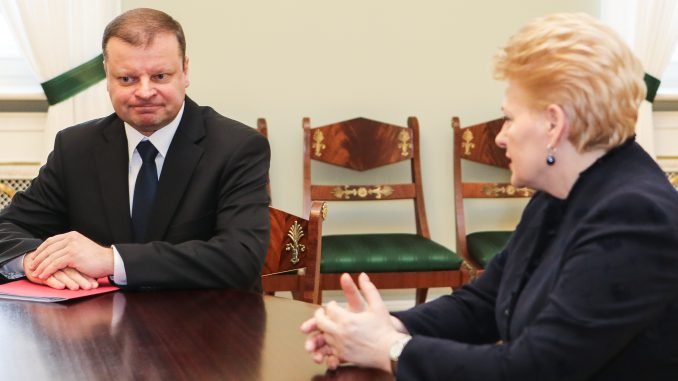
“The prime minister had earlier said he would try to persuade the minister to stay and apparently succeeded. Having in mind political and psychological pressure, support to Skvernelis was rather high and it would have been strange if he had not taken this into consideration,” said Professor Tomas Janeliūnas from the Institute of International Relations and Political Science at Vilnius University (VU TSPMI).
Interior Minister Saulius Skvernelis chose to stay in office after meeting with Prime Minister Algirdas Butkevičius on Monday.
According to some political analysts, the fact that Skvernelis remains in office shows that President Dalia Grybauskaitė‘s opinion is not decisive. However, Janeliūnas notes that the head of state did not directly call for the interior minister’s resignation, but merely expressed certain criticism and regret over his behaviour during the incident when a fugitive with an assault rifle escaped from the police.
Janeliūnas says some other ministers faced even harsher criticism and this time the president did not suggest that the interior minister should resign. In this case, therefore, it was not a clash between two sides.
According to the political scientist, Svkernelis’ case is not the only such precedent and people can change their minds about resignation. He says the interior minister’s decision to resign was spontaneous and rushed, while the minister did not have an opportunity to meet with the country’s leadership.
Professor Algis Krupavičius, of Vytautas Magnus University, has noted that the interior minister intended to resign due to arguments with Parliament Speaker Loreta Graužinienė and not the president. As a result, the tension between the minister and the parliament speaker is likely to remain and arguments might resurface from time to time.
“It is good news that the term of office of the Government and Parliament ends in less than a year, therefore they can outlast such period cdespite the remaining tension,” said Krupavičius.
Krupavičius said from the very beginning the president did not send any signal about the resignation.
“Yes, she expressed criticism, but it was moderate and if it could have been interpreted as a proposal to resign, then that proposal was voiced in a very Aesopian language,” said the political scientist.
According to Krupavičius, the president’s criticism concerning “low political culture” could be applied to every politician in Lithuania. On the other hand, when Grybauskaitė suggests that officials should step down, she does so unambiguously.

Be the first to comment